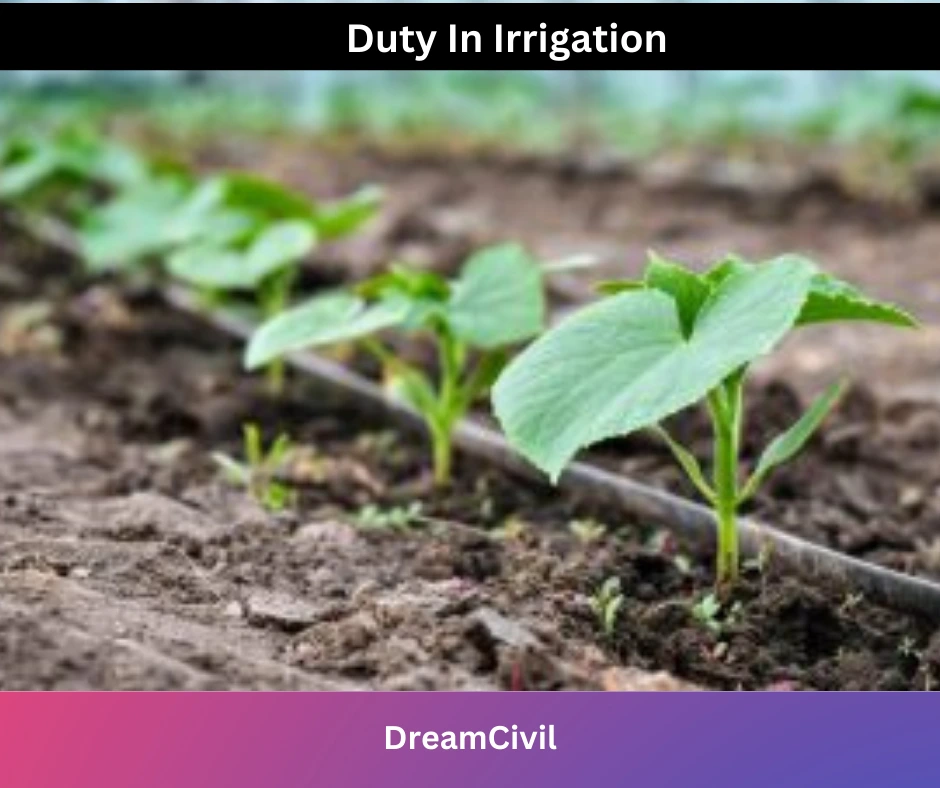Table of Contents
| Summary: Type of crop, climate, rainfall, soil type, method of ploughing, method of irrigation, skill of cultivation, etc are the main factors affecting duty in Irrigation.
|
What is Duty In Irrigation?
Duty may be defined as the area of land (in hectares) irrigated for total crop growth by a continuous supply of 1 m³/sec of water during the crop’s entire base period.
✓ Duty of water(Duty in irrigation) is generally expressed in hectare/cumec and is denoted by the letter D.
9 Factors Affecting Duty In Irrigation
Duty in irrigation depends upon the following subsequent factor:

1. Type of crop
✓ The water demand for numerous crops is entirely different. So, the Duty varies from crop to crop.
✓ The Duty is less for a crop requiring high water and vice versa.
2. Climate & Season
✓ The Duty varies from season to season and also from time to time in the same season. The Duty also includes the water lost in evaporation and percolation.
✓ Losses due to evaporation and percolation vary with climatic conditions. The values of duties generally expressed are their average values considered in the entire crop period.
✓ Duty in the winter season & rainy season is more and less in the summer.
3. Rainfall
✓ More rainfall leads to less requirement for irrigation water.
✓ This means that if rain falls during the crop period, Duty will be more and vice versa.
4. Soil type
✓ The Duty in irrigation will be less for porous soil and vice versa.
✓ In coarse-grained soil, percolation is high, so Duty is low.
✓ In fined-grained soil, percolation is less, so Duty is high.
✓ The Duty of clayey soil is more than the Duty of sandy soil.
5. Method of Ploughing
✓ Proper Ploughing of the land reduces the number of watering & increases Duty. But for faulty cultivation & improper Ploughing, Duty is decreased.
6. Method of irrigation
✓ The Duty of water is high in the case of the perennial irrigation system as compared to the inundation irrigation system.
7. The topography of agricultural land
✓ If the agricultural land is uneven, the water requirement will be higher; hence Duty will be low and vice versa.
✓ As the ground slope increases, the Duty decreases due to water wastage.
8. Base period
If the base period is extended, the water requirement will be higher, the Duty will be low, and vice versa.
9. Skill of cultivation
✓ A skilled & properly trained cultivator can make judicious use of water; therefore, Duty will be high.

